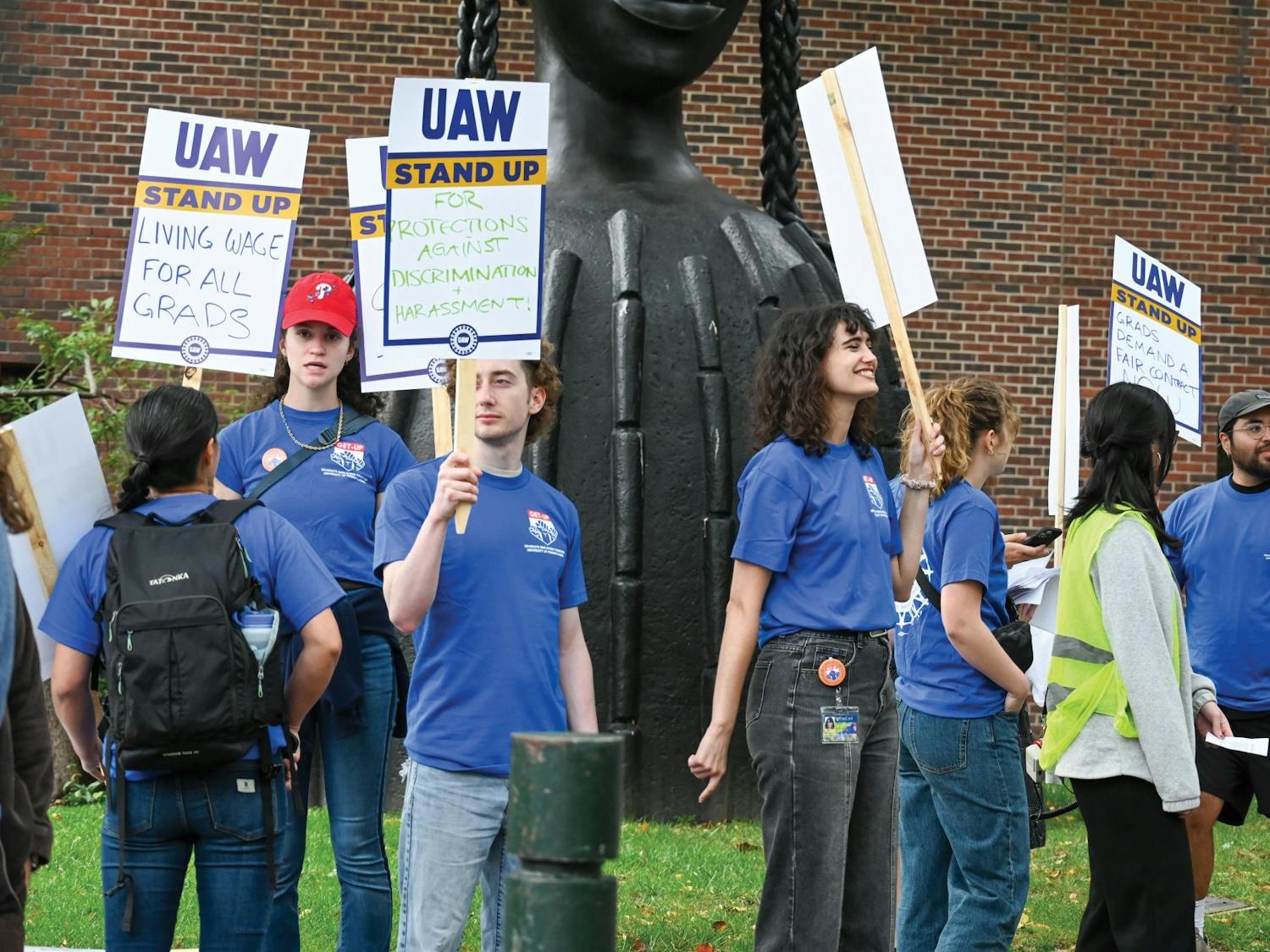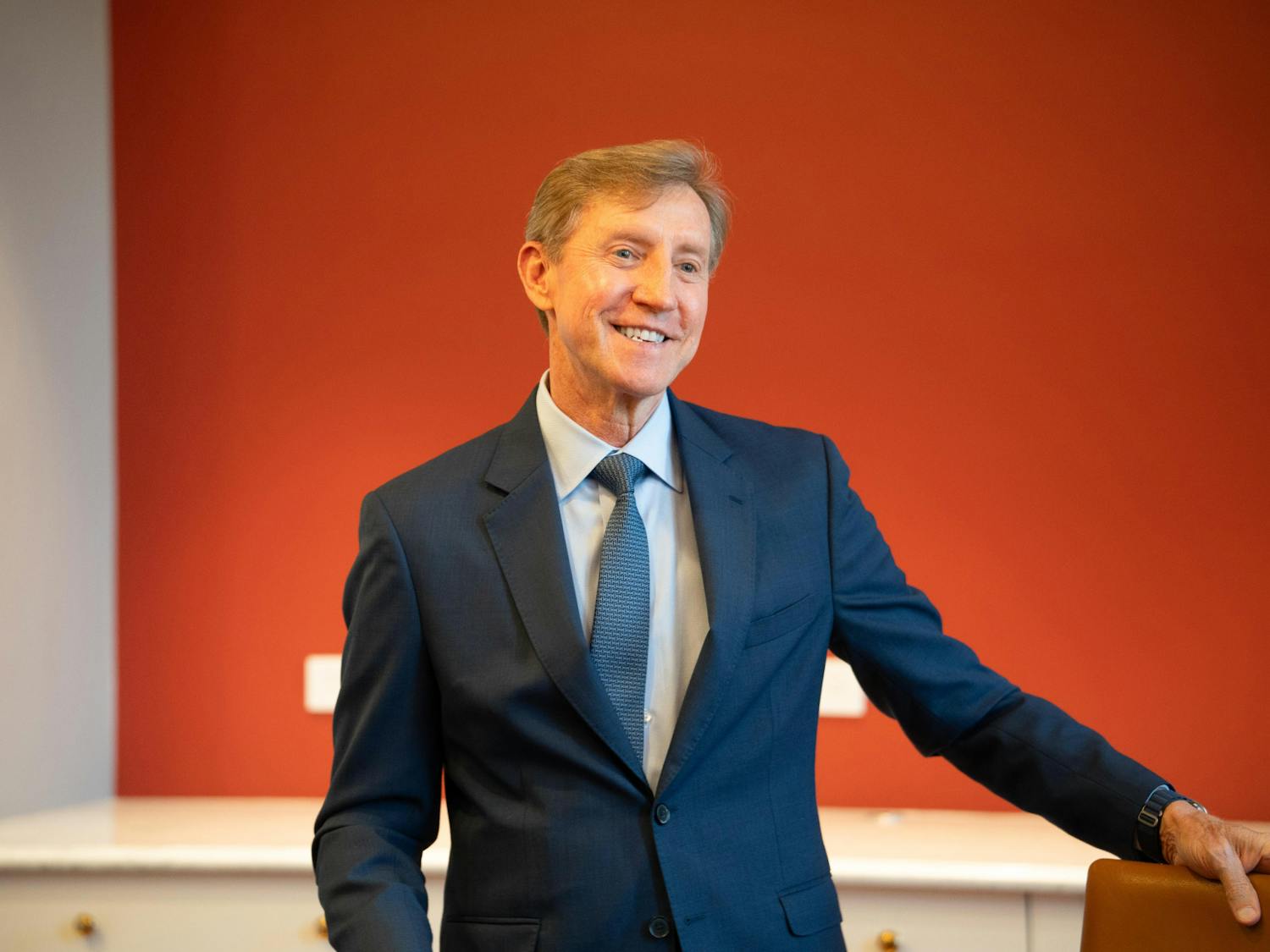Few speakers that come to Penn's campus ask Americans to remember their shameful secrets and share them with the world. But Randall Robinson, a lawyer, activist and author, did just that last Wednesday afternoon when he said that descendants of slaves do indeed deserve reparations from the United States government. Robinson spoke before a diverse mix of about 50 Penn students and faculty members in the Christian Association building. In his latest and most controversial book, The Debt: What America Owes to Blacks, Robinson addressed the subject of reparations. In it, he contends that the reparations are valid -- and even necessary -- considering the continued social and economic disparity between African Americans and whites in America. "African Americans are behind economically. Africa is behind the rest of the world. So one might ask the question, why is it that people of African descent are behind?" Robinson asked. "Something happened to cause this substantial economic gap to open between races in America and in the world," he said, referring to the deep and lasting effects of slavery. The president of TransAfrica -- a lobbying organization for African and Carribean policies -- Robinson argued that the reparations function as an equaling agent in response to present-day racism and nearly 250 years of slavery. He also used his talk to try to refute some of his opponents' arguments. One such claim centers around the fact that even some Africans were involved in the slave trade. He struck down that argument by drawing on an example from the Holocaust. "Even in the Jewish concentration camps, there was some collaboration, there always is." In addition, he addressed those whites who say that they should not have to pay because their ancestors were not involved in the slave trade at all. "No one is talking here about personal culpability," he said. "When a government is complicit in a crime against humanity, that government has a responsibility and an obligation to make the victim whole." Explaining that America has yet to erect any memorials to commemorate the Middle Passage -- the voyage that men and women were forced to take from Africa to America during the Atlantic slave trade -- he showed his frustration in talking about America's lack of acknowledgement of slavery. "I don't think the problem with this has to do with reparations itself. I don't think it has to do with money. I think it is this business of denial. We are living the lie," he said. Many of the audience members felt that Robinson has succeeded in bolstering the fight for more consciousness on behalf of African Americans in the past and the continued effects of racial discrimination. For instance, Tukufu Zuberi, the director of the African Studies Center at Penn, called the talk "a very appropriate end to this year's activities in [Penn's] African Studies." And History Professor Lee Cassanelli said Wednesday's talk was the first time that he had heard Robinson speak, and he was impressed by both the man and the lecture. "I have followed him and his work for 25 years. He is a wonderful speaker and I thought it was a great talk." College freshman Roscoe McMillan agreed, saying, "I found it very invigorating, I really enjoyed it. He was dynamic."
The Daily Pennsylvanian is an independent, student-run newspaper. Please consider making a donation to support the coverage that shapes the University. Your generosity ensures a future of strong journalism at Penn.
Donate







